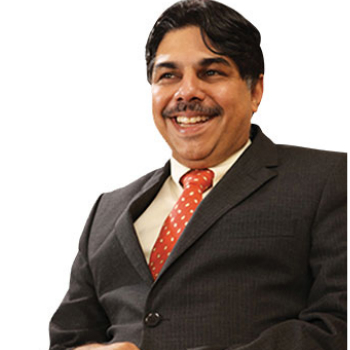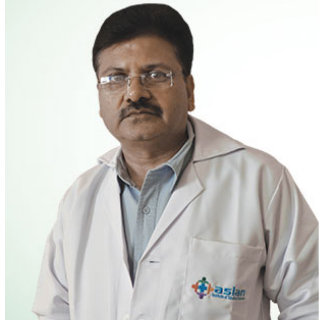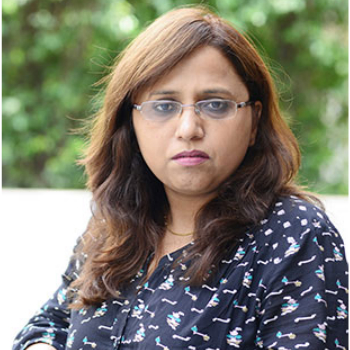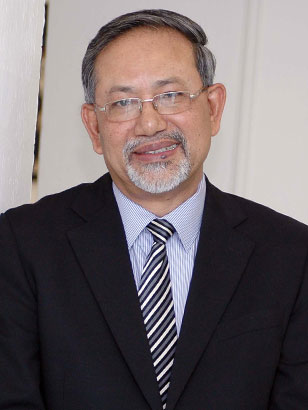
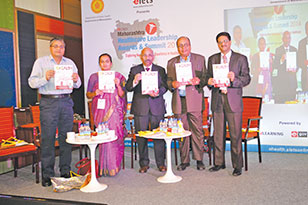 Maharashtra is witnessing a silent revolution in the healthcare sector. The recently concluded Maharashtra Healthcare Leaders Forum held on July 11, 2014 in Pune unveiled the vision and initiatives of healthcare stakeholders across the state.
Maharashtra is witnessing a silent revolution in the healthcare sector. The recently concluded Maharashtra Healthcare Leaders Forum held on July 11, 2014 in Pune unveiled the vision and initiatives of healthcare stakeholders across the state.
With a population of more than 115 million, Maharashtra is the second largest state in India. Healthcare delivery to this widespread and diverse population has always been a challenge for the state. A proactive public and private sector dominant in the state is driving new models of healthcare delivery. Thus, the healthcare sector in the state has seen a growth curve year on year. The contribution of private players has been primarily in strengthening the quality healthcare in the metro cities, whereas the government has introduced many schemes and extended support programmes to uplift the public healthcare pyramid in the state. The state has also seen adop tion of new technologies and IT as a tool for bringing quality and efficiency in healthcare. The smaller towns and cities are also emerging as investment and excellence centres.
This progressive healthcare sector was represented at Maharashtra Healthcare Leaders Forum that aimed to provide a platform for hospitals across Maharashtra to engage with government, corporate, academia and key decision-makers to engage in knowledge sharing and dialogue on best practices, opportunities and challenges in healthcare delivery.

Mapping State Initiatives
The inaugural session Maharashtra Transformation of Hospitals and Healthcare Delivery illustrated the many initiatives taken by government, hospitals and organizations. The keynote address was delivered by Mrs Meeta Rajivlochan, Secretary, Department of Public Health, Government of Maharashtra where she elaborated on the vision and strategies adopted by the government to put patients first in the healthcare ecosystem. If we wish to transform the hospitals be it either the public or the private, we have to put patients first. The objective of making investments in healthcare be whether in terms of infrastructure or technology is to ensure that patient care is delivered in delivered better and patients outcomes of treatment is much better, she said. Pune Municipal Corporation has taken significant efforts to make healthcare for all a reality. She elaborated on schemes to support medical expenditure and make quality care affordable for the lower income groups admitted in hospitals of the city. The city corporation has also taken extensive measures to make women and children better healthcare facilities. Dr KK Kalra, CEO, National Accreditation Board for Hospitals & Healthcare Providers (NABH) in his special address said, Patient Safety is a global concern across many countries. International studies across developed nations indicate that one in every ten patient gets hospital-acquired infection and one in ten suffers from medical error. These numbers are far greater in India with limitations. These medical errors increase the length of stay and incur higher costs to patients and even death. If there is a safety culture adopted in hospitals, most of these medical errors are preventable. Patients are becoming more aware and have knowledge of medical condition and treatment modalities. They want to be involved in decision-making. He added,
The most common reason for medical error is lack of communications. The medical education has not yet imbibed the concepts and implementation of patient safety and soft skill development in its entirety. On one side we are witnessing very high growth in private healthcare sector, but still patient safety still remains a concern in addition to accessibility, affordability, inequity and quality of care. Representing the not-for profit organization, Dr Dilip Murlidhar Sarda, President, Indian Medical Association Maharashtra said,We have taken up the issue of consumer protection act wherein we are demanding for a tribunal that will be at local level, state level and national level that due their expertise in medicine will be able to take better decisions in medical negligence related cases. The association has taken a new initiative on antibiotic resistance to bring more awareness on the issue to use antibiotics very safely.
Healthcare Infrastructur
Dr Manisha Bobade, CEO, Jehangir Hospital said, Best clinical outcomes cannot be achieved without excellent infrastructure. Extensive planning with co-ordination with end-users is important. Manpower should be trained with standard protocols and guidelines. She emphasized the need to upgrade the government hospitals at par with private hospitals and elevate the level of quality offered at these hospitals. New ideas on sustainable and affordable infrastructure were shared by Tarun Katiyar, Principal Consultant, Hospaccx Healthcare Business Consultancy. He said, High operational costs take a toll on the overall sustainability of the hospital. Intelligent building and going green is best way to go forward, the capital cost will come close to 3 percent of the total cost and in the long run the operational costs come down and the return on investment is achieved. The diagnostic industry was represented by Dr A Velumani, Chairman, Thyrocare and he shred his experiences in bringing operational efficiencies for conducting tests and making each test profitable and at the same time deliver customer satisfaction. Biomedical waste is an ignored aspect in operational planning; GH Trivedi, Senior Environmental Engineer, Gujarat Pollution Control Board provided insights on the importance of planning for management of biomedical waste. There is rapid change in advancement of technology as new equipment are coming and new treatment guidelines are being set-up, are we upgrading ourselves to the latest was a concern raised by many. The dignitaries discussed the state-of-art infrastructure of public and private hospitals that supports high efficiency and customer satisfaction for patients.
With complex operational systems and medical ecosystem, to keep patients at the core of the hospital information system, technology is a transformational tool that poses huge opportunities in healthcare. The key technologies that were discussed included EMR, medical imaging, mobile health, tele-medicine and many others. Speaking on government initiatives, Bhudeb Chakravarti, AVP and Region Head, National Institute of Smart Governance discussed the new models of healthcare delivery via kiosks wherein all technologies will be available with tele-health facilities and real-time technology or location based technology that can be used by the healthcare community. Archana Samudra, VP, Palash Healthcare Systems illustrated the role of technology in making the entire process management of hospitals electronic and a click away. The doctors should have accessibility with ease of all patient data on various smart devices such as smart phones and tablets. Patient can easily be at the centre of care if he is connected to his hospital and doctor anytime anywhere. This was well supported by Dr Sandeep Salonkhe, Medical Director, JJ Mahanagar Blood Bank who detailed on the extensive efforts of state blood transfusion council over the years and their latest service of blood on call across the state.
Insurance in Healthcare
Health insurance can be a means for reaching universal healthcare; many global countries have followed this. In the Indian scenario, the government sponsored schemes have reached penetration across many villages, however the private insurance companies still have limited reach and penetration. If we want health insurance to become more generalized, two important needs that the sector needs to do if they are servicing the government or private sector as a client, then they must bring down prices and introduce transparency in their functioning. The sector today is valued at 23,000 crore per annum and the government contributes one-third of the contributor. There are no package rates in the health insurance industry and the healthcare industry that services the insurance sector. The third party agencies have not take desired initiatives and there no general standards and policies for ailments even today. This is important as general protocols help in bringing in transparency in insurance cover and re-imbursement of procedures, said Meeta Rajivlochan, Secretary, Department of Public Health, Government of Maharashtra. The session also had presentations from private insurance companies and hospitals to provide a holistic approach. Innovation will reduce cost and affordability through collaboration. Maharashtra Rajiv Gandhi Jeevandayee Yojna is an innovative scheme under which the department of health of the state has developed entitlement criteria for the participating hospitals and these have been finalized by consultations with NABH and Quality council of India. Initially some criteria have been based in the infrastructure parameters considering the constraints and ground reali ties in hospitals.
Collaborations is the way forward to ensure progressive growth and success in healthcare sector in India. Thus public private partnership and collaboration will strengthen the services and quality of care offered to the patients in hospitals.
Be a part of Elets Collaborative Initiatives. Join Us for Upcoming Events and explore business opportunities. Like us on Facebook , connect with us on LinkedIn and follow us on Twitter , Instagram.



